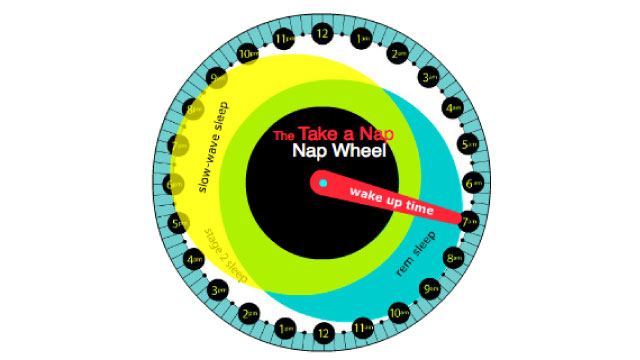Should you be napping?
Written by Jaimie Bougie
I recently flew to North Carolina to visit with my parents and, of course, any time I visit with them, the topic of “food” pops up quite frequently. They love to ask if they should be eating this or if they should be eating that; they also like to argue some unreliable source as a backer to why they are eating something they shouldn’t. I’m not an expect of nutrition by any means, but they know that I pay close attention to what I eat, so I’m the closest thing to talking to an expert as they can get.
Although sleep is not considered “food”, it did pop up once during a conversation that I was having with my father. I generally aim for 8-9 hours of quality sleep a night and one of my favorite quotes from Robb Wolf is when he said to “sleep as much as you can without getting fired or divorced”.
So you can image the shock and horror that I felt when my father, who is 55 and has a few pounds to lose, told me that he stopped his mid-day napping because he read somewhere that “taking naps stops your metabolism. Your metabolism is only burning when you are awake.”
Enter face palm here.
As a habitual napper, I wasted no time voicing my disagreement to my father on this matter. But it did get me thinking: Should you be napping? When should you nap and for how long? Can you nap everyday?
Should you nap?
We live in a society where it is becoming more and more difficult to get the recommended full eight hours of sleep every night, no matter how hard you try sometimes. Because of this, napping is considered a countermeasure for daytime fatigue and sleepiness, and 1 out of 3 Americans are taking regular naps.
Dr. Sara Mednick, who wrote her doctoral thesis on the effects of napping, found the following benefits during her research on the effects of napping:
– Increased growth hormone production
– Decrease in cravings for high-fat, high-sugar foods
– Elevated mood
– Increase in creativity
– Improvement in memory
– Decrease in stress
– Reduced risk of diabetes, heart attack and stroke
From these benefits, we can see that anyone – athletes and non-athletes, the young and the old – can benefit from taking a mid-day nap when the chance arises.
How long should you nap for?
When you sleep, you normally pass through five stages of sleep in a cycle that takes roughly 90 to 100 minutes. When you nap, you generally stay in stage 1 or 2, depending on how long you nap for.
Stage 1: Restorative Sleep lasting 10-20 minutes
Stage 2: REM (rapid eye movement) Sleep
The 20 Minute Nap: To get rid of sleepiness and boost energy, Dr. Mednick advises that you take a 20 minute power nap; this will keep you in the restorative stage 1, where the growth hormone is increased and cortisol is reduced.
The 30-60 Minute Nap: This type is napping is discouraged because you will generally be in stage 2 slow wave sleep during this time. Because of this, you may wake up feeling groggy, a condition known as “sleep inertia”, and it can take anywhere from 30-60 minutes to get back to full functioning.
The 60-90 Minute Nap: If you want to sleep for longer than 20 minutes but want to avoid sleep inertia, then this is the napping time for you! When you nap for longer than 60 minutes, you generally awake in stage 2 (the lighter, dream state of sleeping) and this can benefit those who are involved in creative tasks.
When should you be napping?
People generally start to experience a dip in awareness, reasoning, judgment and physiological responses around 2 p.m. to 3 p.m. each day; because of this, Dr. Mednick suggests this as the best time for napping.
However, this nap time recommendation is based off of the time you wake up in the morning. If you woke up at 7 a.m., then 2 p.m. is the best time for you to take a nap. If you wake up earlier or later than 7 a.m., Dr. Mednick recommends you check out her interactive sleep wheel in order to find the perfect nap time for your schedule. And, of course, it is recommended that you do not take a nap two to three hours before your desired bedtime as to ensure you don’t disrupt your nightly sleep schedule.
Do you take naps? How frequent and for how long? Share your napping stories in the comments below!
References
1. The Wisdom of Napping, Poliquin: http://www.lifestylebypoliquin.com/Lifestyle/StayHealthy/227/The_Wisdom_of_Napping.aspx.aspx
2. Sara C. Mednick, PhD, assistant professor of psychiatry at the University of California, San Diego, and co-author of Take a Nap! Change Your Life(Workman Publishing Company, Inc., 2006).

Great info, I’m a huge fan of napping, with a 2 year old it is kind of easy some days. On a side note, thank the stars your parent listen to you. My parents don’t give two brain waves to anything I say. And I am a very educated and experienced coach. I’m happy to hear some parents do pay attention to this son.
Sometimes I nap standing up. Similar to Mr. Bean in Rat Race.
Great blog. Love naps.